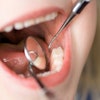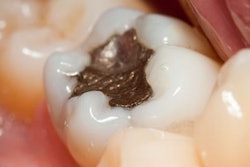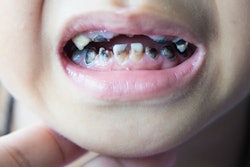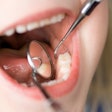
Oral health is having its moment on a global scale. The World Health Organization (WHO) will add fluoride toothpaste, silver diamine fluoride (SDF), and glass ionomer cement to its list of essential medications for adults and children.
These oral health items will be added under the new "dental practices" section of the WHO Model List of Essential Medicines for adults, as well as the one for children. The list contains medications considered the safest and most effective way to meet the most vital needs in a health system. Countries frequently use the list to develop their own local lists of essential medications.
Until now, sodium fluoride was the only dental medicine on the WHO list, said Dr. Habib Benzian, PhD, of the WHO Collaborating Center for Quality Improvement and Evidence-based Dentistry at New York University (NYU) College of Dentistry and senior adviser to the WHO Global Oral Health Programme.
"Given that after 50 years it is still the only dental medicine on the list, we thought that it was high time to change that," Benzian said. "A group of colleagues has been working on issues around the quality and affordability of fluoride toothpaste for many years and we have been advocating for inclusion in the list for a long time."
Every two years, the WHO updates the list to improve the affordability of essential medicines and other supplies for the prevention of disease. This latest update addresses oral diseases by increasing the use of fluoride for caries prevention and offers the possibility of significantly reducing caries incidence and severity while reducing the financial burden for health systems and improving quality of life. Also, it paves the way for other dental medicines to be included in the future.
The addition of silver diamine fluoride and fluoride toothpaste are especially exciting because it will make the substances accessible to many more people, Benzian said.
"Fluoride toothpaste is prohibitively expensive for poorer segments of the population in low- and middle-income countries," he said. "It is estimated that less than 2 billion people use it on a daily basis as recommended; therefore, there is a huge gap for fluoride toothpaste to reach its optimal potential in terms of preventing tooth decay."
In 2013, delegates from more than 140 countries adopted and the U.S. signed the Minamata Convention on Mercury environmental agreement, which addresses activities that cause mercury pollution, including the disposal of dental amalgam. The agreement calls for amalgam to be gradually phased out starting in 2030, so it is important to have global access to the alternative material, glass ionomer cement, Benzian noted.
Is this latest announcement an indication that oral health is finally getting the attention it deserves, and that the world is recognizing the importance of the oral-systemic health connection?
"I would not go so far as to say that, but it is an important step in the right direction," Benzian said. "But maybe more are to follow -- all small pieces that will be part of the bigger puzzle that we need to solve within the coming 10 years."
Nevertheless, this isn't the only time this year the WHO has brought oral health into the spotlight. In May, the WHO declared oral health a global health priority. Though adding dental medicines as essential medicines is independent of the May announcement, "the timing is a welcome coincidence," Benzian added.




















